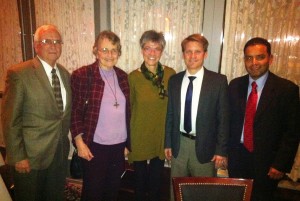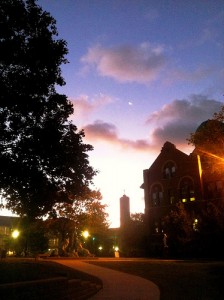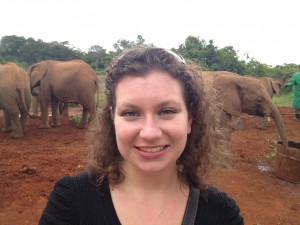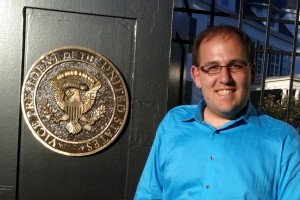James D. Whitehead and Evelyn Eaton Whitehead
On November 20, a day of remembrance will be held for transgender persons throughout the world who have been killed during the past year. In Chicago, Denver, Tucson, New Orleans and many other U.S. cities, candlelight vigils are planned—during which a litany of names of those who have died violent deaths will be sounded. (See the website for a further listing of cities and schedules of ceremonies.)
It is altogether fitting that Catholics join in this celebration. November is the month in which we honor All Saints and All Souls, remembering those who have gone before us. Another claim on the Catholic community is the Church’s commitment to social justice. The violence against transgender persons – ranging from bullying of children, to the adult experiences of discrimination at work, physical intimidation and even murder – cries out for protest from a faith community that would witness to peace and justice. But there are obstacles as well. On many sexual and gender issues, official church statements do not always contribute to social healing.
The words of Genesis, “male and female God made them,” have often been interpreted as the foundation of theories of sexual dimorphism: human nature was constructed in two and only two genders. Religious authorities reinforce this gender dichotomy as both theological doctrine and moral mandate.
Yet human experience records a dazzling diversity in God’s creation, registered in humanity as well. When we find ourselves confused or even bewildered by the questions surrounding gender diversity, it is useful to recall that bewilderment sometimes serves virtuous purposes. As one historian of religion writes, bewilderment may “correct the inclination to unwarranted certainty.” Our bewilderment, at first so unsettling, may serve as a portal to humility and open us to God’s extravagance so generously on display throughout the world. St. Paul spoke of this diversity in bodily terms: “Now you are the body of Christ and individually members of it.” (I Cor.12:27) He counsels us that those members that are most vulnerable are to be cared for with the greatest respect; he reminds us that if one member suffers, all members suffer. And, in a conviction that has special relevance for transgender Christians, “No members can say to another, we do not need you.”
We are more aware today that gender and anatomy are not the same. The first formation of gender takes place before we are born, under the influence of prenatal hormones that influence the fetal brain. While we are afloat in our mother’s womb our tiny bodies and brains are awash in these hormones. Powerful chemicals prompt the gradual development of male or female genitalia, as well as inscribing a sense of gender identity in the brain. Most often the baby’s anatomy will match the brain’s sense of gender identity. But not always. Most transsexuals as early as childhood experience a powerful and enduring dissonance between the gender that their body displays and their interior sense of themselves as woman or man. For many, the search for gender integrity will entail a long and painful struggle. Spiritual health depends on a sorting out of this disconnect and moving toward a harmony in their experience of gender identity.
More and more Christian communities are becoming aware that the transition the transgender person faces is, in fact, a spiritual journey. The United Methodist church has published a valuable guide, entitled Made in God’s Image. In it they write, ‘We understand our gender diversity to be a gift of God, intended to add to the rich variety of human experience and perspective” And, “the problem is not in being different, but in living in a fearful, condemning world.”
A Lutheran parish in San Francisco has created a renaming ritual to celebrate the completion of a transgender person’s transition and welcome the person into the community. In doing so, this gathering is following our tradition of renaming individuals (Jacob in Gen. 32; Paul in the New Testament) who have come through life-transforming changes.
A Catholic sister has developed a Trans Awareness Evening to introduce more of the faithful to the challenges and hopes of transgender members of the body of Christ. She also offers simple ceremonies of blessing for persons preparing for gender-confirming surgery. In her spiritual direction with transgender persons themselves, she invites them to pray Psalm 139: “It is you who formed my inmost parts. You knit me together in my mother’s womb. I praise you for I am fearfully and wonderfully made.” In the midst of such prayers transgender hearts, long abused by social and religious rejection, begin to heal.
Such ministries are responding to the Christian heritage of a community of faith as both sanctuary and sacrament. In medieval times the church building often served as sanctuary to protect the life of fugitives; today churches might renew this ministry of welcome and protection of transgender members.
Hilary Howes, a Catholic transsexual writes, “I hope that Catholics would look at the body of scientific and medical evidence to develop a loving acceptance of those of us with this variation.” Finally, she adds, “I understand that my journey, though personal, touches that which is universal about gender for everyone…looking at everything as us and them, black and white, male or female, is limiting and dangerous. Ultimately, welcoming the mystery of diversity in God’s plan is the healing for our church for which I most hope.”
In the broader US culture, a process of appreciating the experience of transgender lives is underway. The film director Lana Wachovski (Cloud Atlas) talks openly of beginning life as Larry before transitioning to Lana. Transgender young adults are finding their transition less fraught by years of denial and fearful pretending. This new generation is opening the way to a richer appreciation of God’s creation. Listening to their experience, the larger community comes more easily to affirm Paul’s judgment, “There is no longer Jew or Greek, there is no longer slave or free; there is no longer male or female; for you are all one in Christ Jesus.” (Galatians 3:28)
But even as these encouraging changes take place, it behooves us to pause in respect for those transgender members of our human community who have been victims of violence. So we gather in solidarity and in prayer on November 20.
This essay appears in the National Catholic Reporter (online edition), Monday, Nov. 19, 2012.
James and Evelyn Whitehead have long been associated with the Institute of Pastoral Studies at Loyola University Chicago. A major focus of their teaching and writing is the vital links between sexuality and spirituality. Currently they are examining the experience of transgender adults and the pastoral responses of communities of faith.




